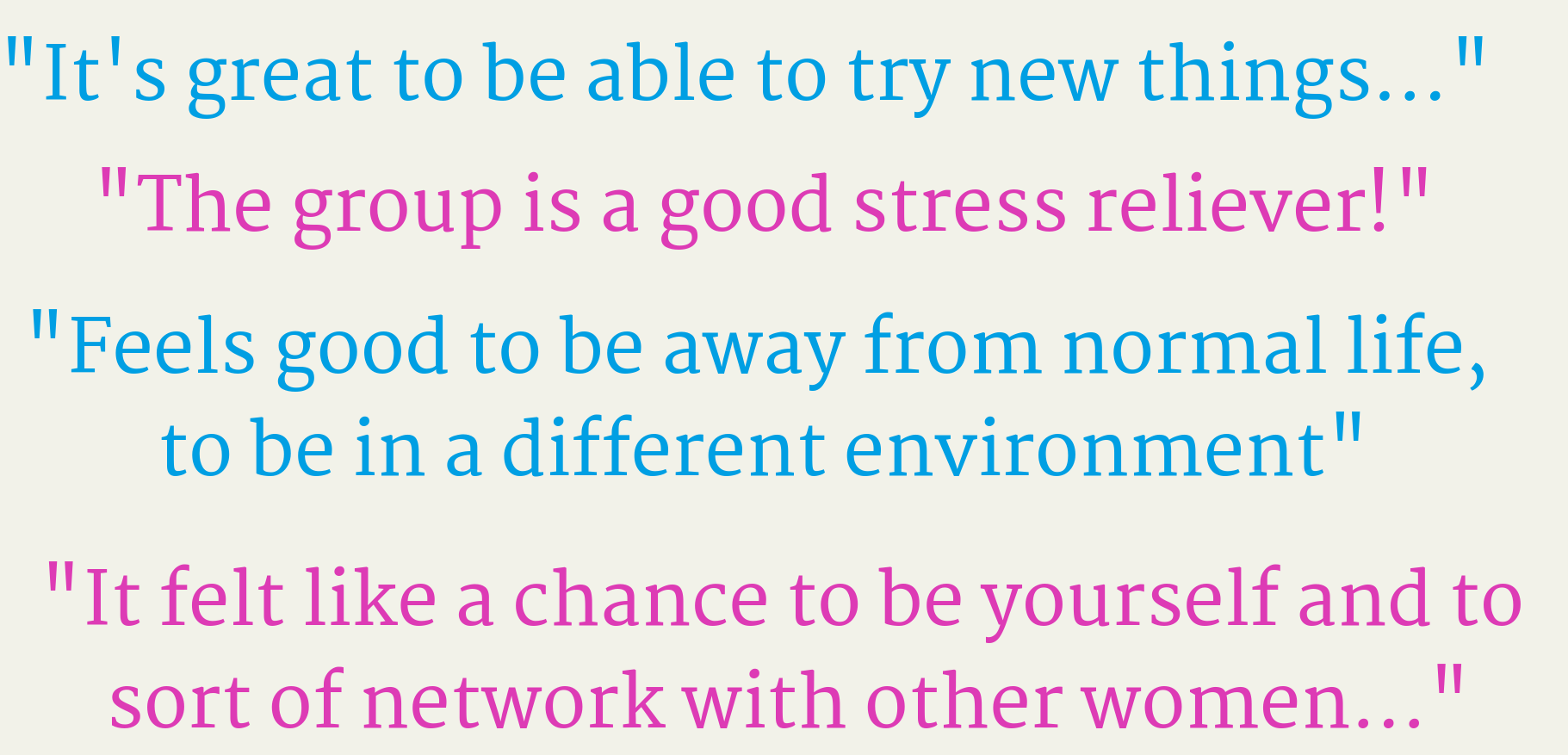Life on the streets can be particularly tough for women. Here, we explain some of the specific services we provide to help our female clients recover from homelessness and get their lives back on track…
Sleeping rough is incredibly dangerous for anyone – it puts people at risk of crime and violence, causes physical and mental health problems and damages wellbeing. For women however, life on the streets presents additional dangers. Research suggests that three in 10 female rough sleepers have experience sexual violence[1]. Women are also at risk of being exploited into sex work.
Homeless women are also more likely to be physically attacked than men, with nearly six in 10 reporting being have been intimidated or threatened with violence while on the streets compared to four out of 10 men[2].
We also know that women are underrepresented in homelessness services. Anecdotal evidence suggests than women can tend to avoid these services, perhaps because they are sometimes perceived as a ‘male space’.
At The Connection, we provide a wide range of support to help female rough sleepers.
Emergency Accommodation
Our Emergency Accommodation has a separated women-only area for those who choose to sleep there. Our EA manager Paul explains:
“Whilst our female clients are of course free to sleep elsewhere, we find a lot of them prefer to stay in the women-only area. We don’t always know what people have experienced on the streets or in their lives before that, so it’s important to make sure everyone comes to us feels safe and comfortable – that’s the only way they’ll begin to trust us and open up so we can start to work with them to find a way off the streets.”
In the last year, 126 women have stayed in our Emergency Accommodation.
Support groups for women
We also run specific groups for women. Liddie, who helps to run these groups, explains:
“The women’s group meets every Thursday and is a relaxed drop-in group where woman can access practical services like showers and laundry, as well as support from female staff members and each other. We find that some of our female clients feel much more comfortable talking in a women-only environment, so we also use the group as an opportunity to talk to them about their experiences and their hopes for the future, and to help them make a plan.
The group has also developed into a great voice to promote the interests of women (who make up around 13% of our clients) within our wider services too. We’ve found there’s a stronger sense of community as a result of the group, and real friendships are being made too which is great!”
Since September, we’ve also been running a joint ‘Women Together’ group, open to our clients as well as clients from The Passage and Seymour Place, two other local day centres. This group meets fortnightly to socialise and take part in activities like cake decorating, dance workshops and arts and crafts. The group is a great opportunity for women to meet clients from other centres and develop friendships, as well as offering a relaxed space to have fun and discover (or re-discover) new interests.

What our clients have said about the Women Together group
Outreach
Our Street Engagement Team goes out to the streets twice a day, five days a week to find and engage with rough sleepers where they are. This is vital work as it allows us to build relationships with vulnerable women who might not be comfortable or confident enough to access traditional day services.
The team works with some of the most vulnerable people in Westminster. Often they are completely entrenched in their street lifestyle and have no contact with support services – even basic healthcare.
Sarah’s story
We met Sarah* on Charing Cross Road. She’d come to the area fleeing domestic abuse but had been followed by her partner and very quickly became entrenched in a lifestyle of street drinking, drug use and begging whilst living on the streets with her violent partner.
Sarah was initially very resistant to our attempts to engage with her. Our outreach team persisted over several weeks, at first buying coffees and speaking to Sarah about her welfare, until she was able to trust us enough to provide the information we needed to come up with an action plan.
Her outreach worker spoke to Sarah’s drug and alcohol support worker in Kent, where she’d come from, in order to transfer her treatment to Westminster temporarily.
Sarah was also encouraged to our day centre to have a hot meal, shower and wash her clothes. This gave us further opportunities to build our relationship with Sarah, who eventually accepted a bed in our Emergency Accommodation – getting her off the street and away from her partner.
Since then we have successfully reconnected her to Kent. We’ve kept in touch with agencies in the area to make sure she has the support in place for her to maintain a tenancy, address her drug and alcohol misuse move forward in her recovery from domestic abuse.
[1] Research by Crisis, 2016
[2] Research by Crisis, 2016
